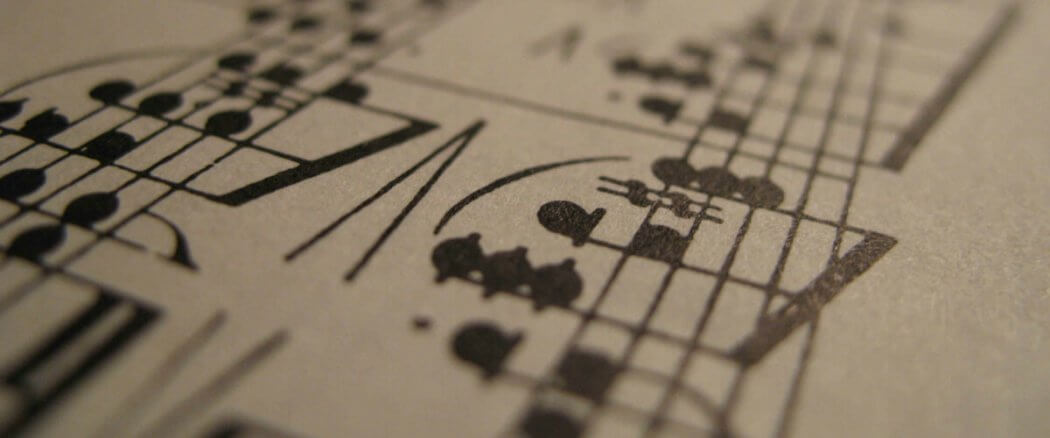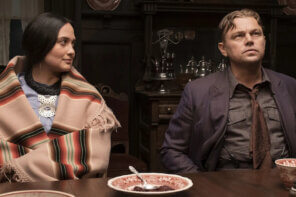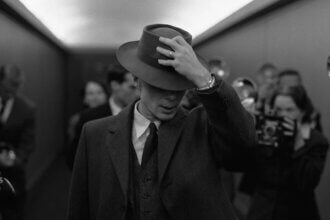Prior to diving into this essay, I feel a need to quantify and qualify the topic. First, I am not a musical expert. My knowledge is limited to having played trumpet in grade school, and messing around with a bass guitar for most of the time period following the end of my trumpeting days. Also, I listen to music. As far as musical theory, or understanding the significance of major and minor chords, et. al. I am deficient. For the purpose of this essay, I think a “lay” understanding of music will not only suffice, but may in fact be preferable. I will not get lost in the technical mastery, but will seek to find where it taps into the human soul.
Second, I am limiting the scope to two topics. The first topic will be a constructed ideology formed by a “common” or shared score due to its definitive nature i.e. I will look at two separate films (both topically and chronologically) that utilize the same score to produce a similar effect. The second topic will look at music that holds its own iconography, and serves to separate/elevate a specific set of films. Because of this it will not be inclusive of a majority of the top tier compositional talent, nor will I be addressing the use of pop music (like the incredible soundtrack of David Lynch’s Lost Highway), or musicals as a genre.
Third, if you have not seen On the Waterfront, He Got Game, or a Sergio Leon Spaghetti Western, you may want to familiarize yourself with at least the content for any of this to make sense.
Music’s Power
So what is so important about music, especially when dealing with film? Plato stated: “Music is a moral law. It gives soul to the universe, wings to the mind, flight to the imagination, and charm and gaiety to life and to everything.” Victor Hugo said, “Music expresses that which cannot be said and on which it is impossible to be silent.” Or, as Martin Luther put it, “Next to the Word of God, the noble art of music is the greatest treasure in the world.” Music may be the single most important component to making a film great — if you don’t think so, try watching a film muted and with subtitles, it will (if it’s a good movie) still be beautiful, but not connected in the same light.
Music provides us with something unspeakable, and when combined with the imagery and context of a film certain moments become transcendent. Our viewing experience is elevated beyond the voyeuristic and can shift towards something like the Platonic forms; it becomes something that connects us in the deepest places of our souls to who these characters are, who we are, and who God is. Music, done well in film, cuts through the need to understand an image’s iconography and puts into the simplest, but most indiscernible terms, an exact and pure emotion.
A Case Study by Comparison
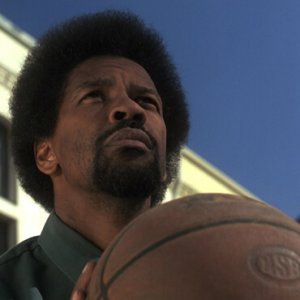 For me the single most striking composition in film has been Aaron Copland’s Billy the Kid Suite. There are two movies that show the diversity of this piece, and the ethos behind it. The first is On the Waterfront. There are few films that might be considered quintessential to the American Culture more than this one. The specific scene I am thinking of, the one of both triumph and agony for our hero Terry, in which he stands up to the corrupt Johnny Friendly and his coercive labor goons, is a stand against injustice through nonviolence and will. He offers the working men hope while shattering the mythology of the stool pigeon’s cowardice.
For me the single most striking composition in film has been Aaron Copland’s Billy the Kid Suite. There are two movies that show the diversity of this piece, and the ethos behind it. The first is On the Waterfront. There are few films that might be considered quintessential to the American Culture more than this one. The specific scene I am thinking of, the one of both triumph and agony for our hero Terry, in which he stands up to the corrupt Johnny Friendly and his coercive labor goons, is a stand against injustice through nonviolence and will. He offers the working men hope while shattering the mythology of the stool pigeon’s cowardice.
The second film, and one of my favorites of all time, is He Got Game. There are two scenes within the movie that use Copland to connect with the same emotion as On the Waterfront. The first is the opening scene of all the people playing basketball: pick-up, shooting by themselves, organized ball, in the city, in the country, across the nation, black, white, Hispanic, Asian; Spike Lee hits it all. And there is a purity, a nobility much like Terry’s, that erases all those differences. It connects Americans with an America, not as it is, but as it is wished to be. On using Copland, Lee stated, “When I listen to Aaron Copland’s music, I hear America, and basketball is America.”
Using this score Lee makes the viewer immediately aware of something pure, an ideal, being out there and in that moment between the court’s lines when the ball slips off the shooter’s finger tips and seems to float mid-air rotating, rotating, rotating until that moment it goes through the net.
It’s interesting how both of these movies are highly critical about the corruption and brokenness within our country. How the lower classes are compromised, exploited, know it, and have no way out of it. Both movies transcend the reality without looking away from it, but by taking it on directly, not violently, but meekly, in a strange and freeing submission that seems contradictory outside the Christian understanding of paradox.
Good Music Transcends Our Limitations
In the end it’s the music that translates the acts within these films into the common tongue, into our emotional sphere and psyche. It breaks us upon the gentle rocks of melody and strings, and we are reminded of a right way amid the brokenness, a purity of “the game,” of sacrifice, and a compassion for those removed from the powers of this world but who are still under their thumb.
In so many ways He Got Game is the more honest portrayal. Although Terry is badly beaten, he has liberated and is liberated. Jake Shuttelsworth, however, remains trapped by the corrupt; his only way out is the game, the only thing pure left is the game, the only freedom left is within the confines of the game.
This is true for Christians too. Even in the freedom we have won through Christ, we are still subject to the world’s corruption, we still plant and with our fruit comes thistles, we still succumb to the ultimate corruption in death. But, there is a freedom for us too, in the confines of our faith.
The true beauty of Copland’s suite is that it transcends both these films — the ideology it imprints upon us is present in or even outside these films.
The Iconography
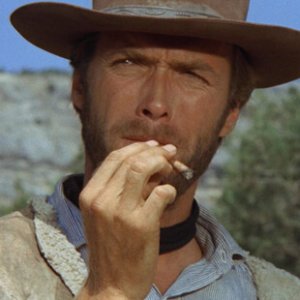 Ennio Morricone differs from the Copland suite, because his music, specifically from Sergio Leon’s Nameless Man series, seems impossible to divorce from the original film (unless it is being used ironically). Instead of a transcendent ideology, Morricone, Leon, and Clint Eastwood have teamed to create something iconic. It is so ingrained in our culture that I can remember humming The Good, The Bad, and The Ugly before I even knew what a cowboy was. Please note that I am not suggesting that Ennio Morricone has not contributed to film scores outside of this (the man has certainly accomplished similar feats as the above mentioned Copland suite, but in this specific instance — the Sergio Leon Spaghetti Westerns — he has accomplished something different).
Ennio Morricone differs from the Copland suite, because his music, specifically from Sergio Leon’s Nameless Man series, seems impossible to divorce from the original film (unless it is being used ironically). Instead of a transcendent ideology, Morricone, Leon, and Clint Eastwood have teamed to create something iconic. It is so ingrained in our culture that I can remember humming The Good, The Bad, and The Ugly before I even knew what a cowboy was. Please note that I am not suggesting that Ennio Morricone has not contributed to film scores outside of this (the man has certainly accomplished similar feats as the above mentioned Copland suite, but in this specific instance — the Sergio Leon Spaghetti Westerns — he has accomplished something different).
A few years ago (probably more like a decade) Nike used The Ecstasy of Gold to push some of its products — evoking the moment when all things come to fruition. The first time I saw the commercial it gave me chills. Why? Because it was affiliated with a heroic icon, a man too talented to be defeated but always ready to drop personal gain for the moral interest, something stern, gruff, but compassionate; and able to do whatever was needed, even against the worst of the worst. Nike wanted people to think that they could become the Clint Eastwood of football, the nameless drifter who no one takes seriously until the action starts.
All of that imagery comes from Ennio’s guitar strumming, whistle-inducing tunes.
So What?
This is all a lot of cute song and dance, but what does it really matter?
Well, consider this: What we know of the universe carries with it an odd language underwritten within. That language is mathematics. Some argue this to be purely coincidental, or underplay this oddity as a “nice” coincidence; however, consider the correlation between music and math, and how that language speaks to us without words.
In C.S. Lewis’ first (chronologically, but not written) Narnia book, The Magician’s Nephew, Aslan sings the world into creation. This is a great insight into the power of music to build, to create, to give life. We already know the power of God’s words from the Genesis account, and the teachings of Christ; now we are considering the artistry of the language with which the universe is underwritten.
Maybe this is why a film’s score seems to take us somewhere further than just the images themselves. Maybe this is why these ideologies connect, even across such different films as On the Waterfront and He Got Game, or how we know Clint Eastwood is a noble hero before we see any of his noble deeds in the Nameless Man series. So, next time you watch a film, pay attention to what the music conveys, what does it pull forth without your having noticed before. Or mute a movie and see how quickly the mood of the film changes – the pictures (if it’s a good movie) are still incredible, but is something lost in the language of image without the language of music to reinforce it?

